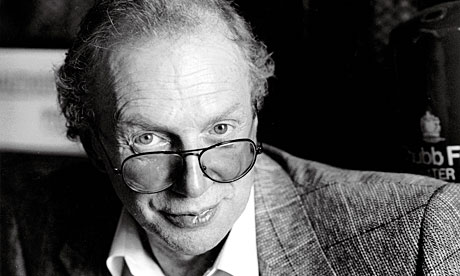
A couple of readers were sharp to retort to John Dugdale's lament in the Guardian's literary Review a couple of Saturdays ago that followers of rugby union's World Cup were sadly deprived of any decent follow-up reading matter because the sport so lacked any classy and stylish fictional lit. Other sports, said Dugdale, had recently been thriving on a variety of "brainy" books, such as cricket's Netherland, football's The Damned United and horseracing's Lord of Misrule.
In firing back impassioned claims for two New Zealand writers – Lloyd Jones's The Book of Fame (2000) and Greg McGee's Foreskin's Lament (1980) – readers in fact neatly proved Dugdale's point for neither is a literary novel. Jones's is a chronicle of a rugby tour (and as a writer of one or two of those dire diaries myself I know their literary currency to be pretty frayed) while McGee's is a theatrical play set in a rugby changing room where, surely, rugby league got in first, literally, with The Changing Room, starring Brian Glover, which cheered London's West End through the mid-1970s. (Rugby league, of course, provides the imperishable ace in sporting fiction with David Storey's This Sporting Life.)
Rugby union's lack of illuminating fiction, reckoned Dugdale, was surprising, given the number of authors who played the game, among them Sir Arthur Conan Doyle and PG Wodehouse. In fact, both those worthies far preferred cricket – the former once clean bowling WG Grace at Lord's – and to the end Wodehouse reckoned his cricket novel Mike was his most accomplished and satisfying and the one he hoped posterity would allow to "live" longest. Mind you, in Very Good, Jeeves! the great manservant, who knew about rugby as he knew about everything, warned Bertie's pal Tuppy Glossop against playing a sport "where the primary object of the players, I am given to understand, Sir, is not so much to score points as to inflict violence".
Plum's 1930s contemporary John Buchan was a novelist who created for immortality not only the upright adventurer Richard Hannay and his 39 Steps but, for Castle Gay, the Scottish international match-winning winger Wee Jaikie Galt, "five feet six inches and as slim and fast as a wagtail", while in the same decade, in England, Their England, AG Macdonell enjoyed not only his priceless village cricket match but an almost as appealing account of a rugger-buggers' outing to the 1930 Varsity match at Twickenham
To toss the founder of the feast Thomas Hughes and his Tom Brown's Schooldays of 1857 into the mix would skew the easy flow of this debate but, offhand, to name a few more terrific authors I know for a fact to have been mighty fond of their rugby – Philip Larkin, Dai Smith, Colin Welland, Gareth Williams, Brian O'Nolan, Mick Imlah, Dennis Potter and Alun Richards – does prove some sort of bonny literary point … as I offer my favourite rugby prose passage, by Dylan Thomas in A Story:
"I played for Aberavon in 1898," said a stranger to Enoch Davies. "Liar," said Enoch Davies. "I can show you photos," said the stranger. "Forged," said Enoch Davies.
"And I'll show you my cap at home." "Stolen." "I got friends to prove it," said the stranger in a fury. "Bribed," said Enoch Davies.
On the subject of great stuff there have been genuine and radiant heroics this month by those from that same neck of the woods to remind any old hand of the local derby game in Wales's definitive epic novel of 1939 How Green Was My Valley, which Richard Llewellyn set in his grandfather's mining village of Gilfach Goch up in Tommy Farr country near Tonypandy:
"Shout, crowd, shout, with one voice on a rising note as the fly-half runs pell-mell and Cyfartha Lewis dances out to meet him. Cyfartha is like a fisherman's net. The fly has been too clever. He should have passed to his wing long ago but he is greedy and wants the try himself, and on he goes, tries to sell a dummy, and how the crowd is laughing now, for to sell a dummy to Cyfartha is to sell poison to a Borgia. The fly is down and Cyfartha kicks the ball half way down the field to our forwards, and has time to offer his hand to poor Mr Fly, who is bringing himself to think what happened after the mountain fell on him."
It is an apt literary homage to celebrate the relentlessly hearty energy, bravery and strength of the Wales XV's tackling in New Zealand this 2011. To be continued, one trusts, for two more weekends, eh? And why not?

